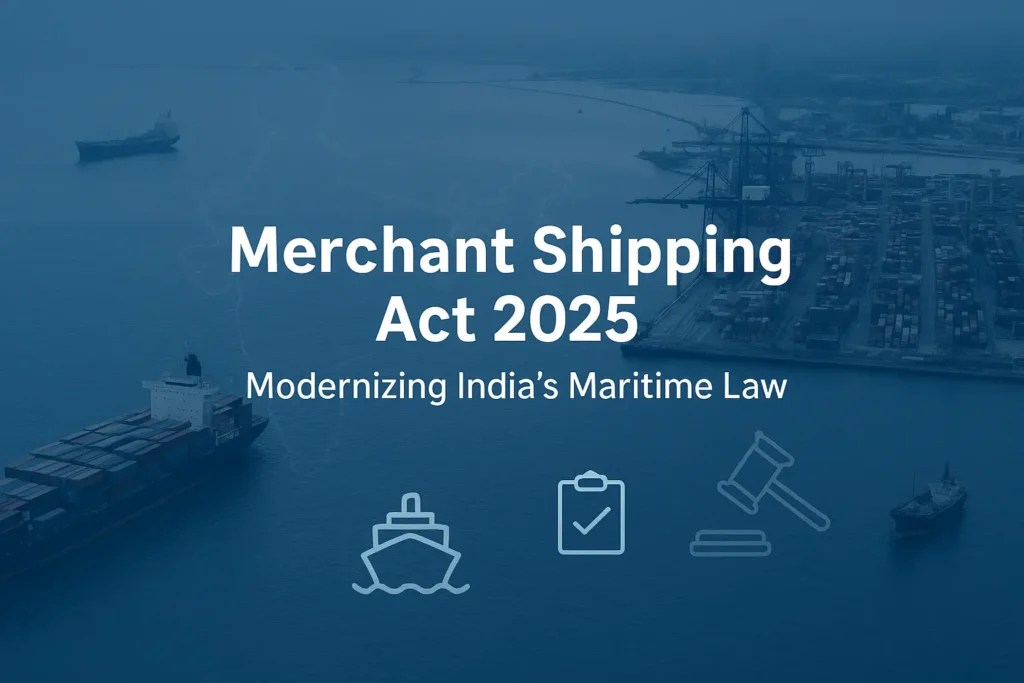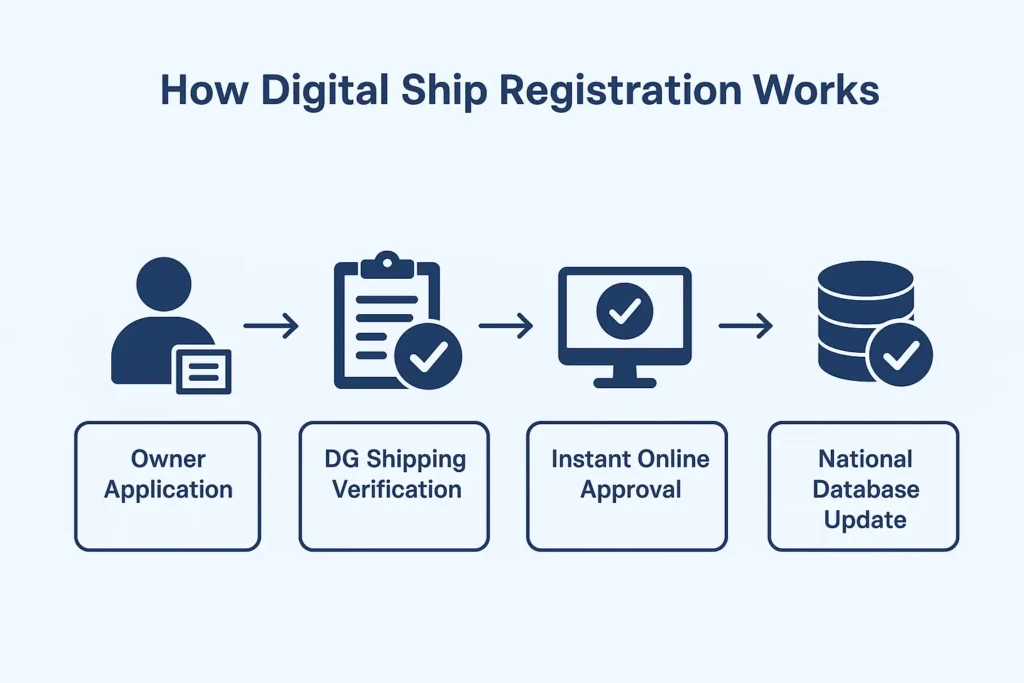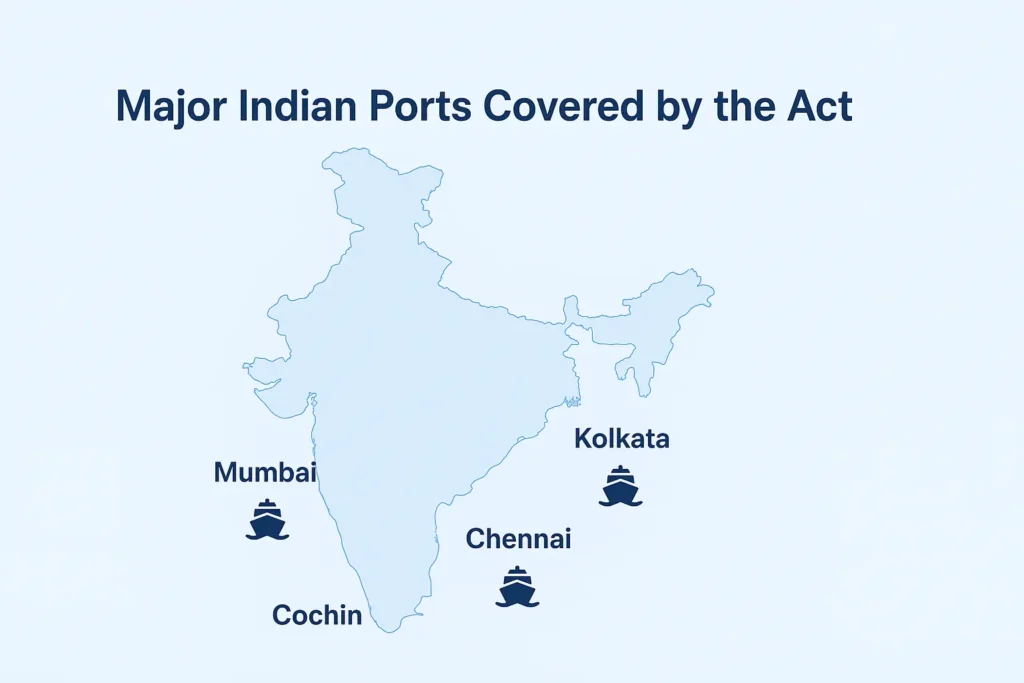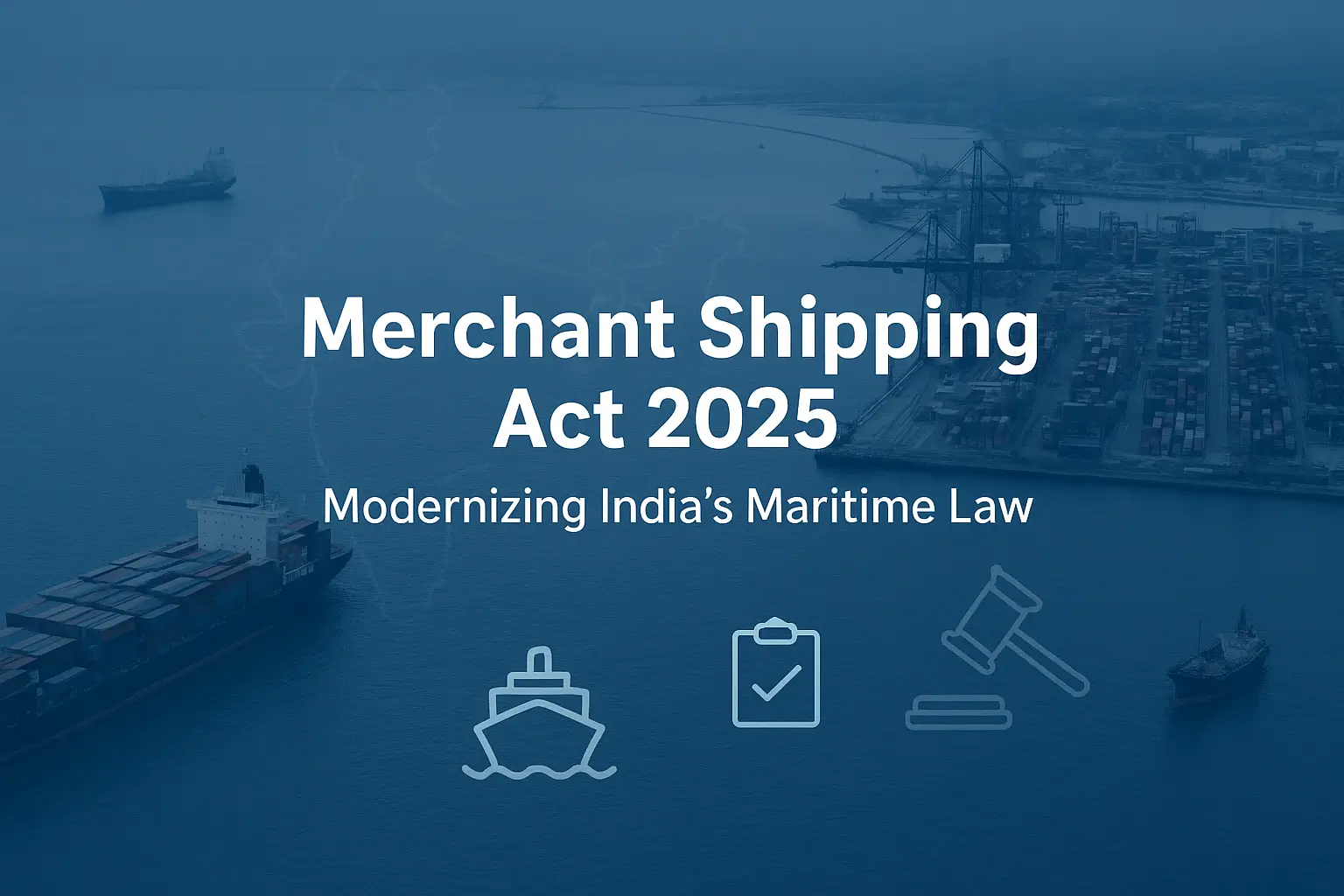Introduction
India’s maritime industry is undergoing major reforms with the introduction of the Merchant Shipping Act, 2025. This legislation aims to replace outdated provisions, strengthen maritime safety, boost employment opportunities for Indian seafarers, and make compliance easier for shipowners and maritime businesses.

The Act streamlines licensing, modernizes regulations, and creates a transparent framework to protect both domestic and international shipping interests. Platforms like IndoSearch help stakeholders stay informed about regulatory requirements, approved agencies, and medical practitioners.
Key Objectives of the Merchant Shipping Act 2025
- Modernize Indian shipping laws to match global standards.
- Protect seafarer rights by mandating employment through licensed agencies.
- Improve vessel safety and compliance monitoring.
- Simplify procedures for ship registration, crew documentation, and coastal trade licensing.
- Create a digital ecosystem for transparency and governance.

Major Provisions of the Act
| Provision | Details |
|---|---|
| Digital Ship Registry | Streamlined registration with real-time data for authorities. |
| Crew Protection | Only DG Shipping-approved recruitment agencies (RPSL holders) can place Indian seafarers. |
| Maritime Safety Norms | Updated survey, certification, and manning requirements. |
| Penalty for Violations | Heavy fines and detentions for non-compliant vessels or fake recruiters. |
| Training & Certification | Ensures seafarers undergo DG-approved courses and medical tests. |

Why This Act Benefits Seafarers and Employers
1. Legal Protection for Seafarers
The Act mandates recruitment through licensed RPSL agencies, reducing risks of fraud, unpaid wages, or abandonment at sea.
2. Verified Medical Standards
Seafarers must undergo medical examinations only from DG Shipping-approved doctors. This ensures valid fitness certification and prevents contract rejection.
3. Simplified Regulatory Compliance
Shipowners benefit from digitalized processes — easier licensing, surveys, and documentation.
4. Enhanced Safety and Training
By mandating DG-approved training courses, the Act strengthens India’s reputation as a source of highly skilled seafarers.
5. Transparency Through Digital Databases
A national database will track ship ownership, crew details, and regulatory approvals — curbing malpractice and enabling fast verification.
Challenges in Implementation
- Awareness among small agencies and operators about new compliance standards.
- Upgrading digital systems for nationwide registry and crew data.
- Strict enforcement to deter fake agencies and unauthorized medical examiners.
Government References
Strengthening India’s Position in Global Shipping
The Merchant Shipping Act, 2025 not only addresses domestic regulatory gaps but also aligns India with international conventions such as SOLAS, MARPOL, and the Maritime Labour Convention (MLC). By harmonizing with these global standards, Indian-flagged vessels gain wider acceptance in foreign ports, reducing delays caused by compliance disputes. This alignment also boosts the employability of Indian seafarers on foreign ships, as their training, certification, and medical fitness records meet internationally recognized benchmarks.
Boost to Coastal Trade and Shipbuilding
By simplifying licensing and registration for coastal vessels, the Act encourages domestic shipowners to expand operations. This is expected to drive demand for shipbuilding, repair services, and allied industries, creating more jobs and fostering economic growth in India’s coastal states.
Data-Driven Maritime Governance
With all ship and crew records moving to a centralized digital platform, authorities can track compliance trends and detect irregularities faster. This data-driven approach enables targeted inspections, reduces paperwork, and ensures quicker decision-making for both regulators and industry players.
FAQs
1. What is the purpose of the Merchant Shipping Act 2025?
It modernizes shipping laws, protects seafarer rights, and enhances vessel safety in line with global standards.
2. How does it impact Indian seafarers?
It requires recruitment only through licensed RPSL agencies, ensuring safer contracts and better wage protection.
3. What role do DG-approved doctors play?
Only certified doctors can issue valid medical fitness certificates, preventing contract or port rejections. (Find them at IndoSearch Doctors.)
4. What penalties exist for non-compliance?
Fake recruiters, unauthorized agencies, or non-compliant vessels face heavy fines and legal action under the Act.
5. How does IndoSearch help with compliance?
It provides updated listings of approved recruiters, doctors, and regulatory guidance for all maritime stakeholders. (See IndoSearch for details.)

